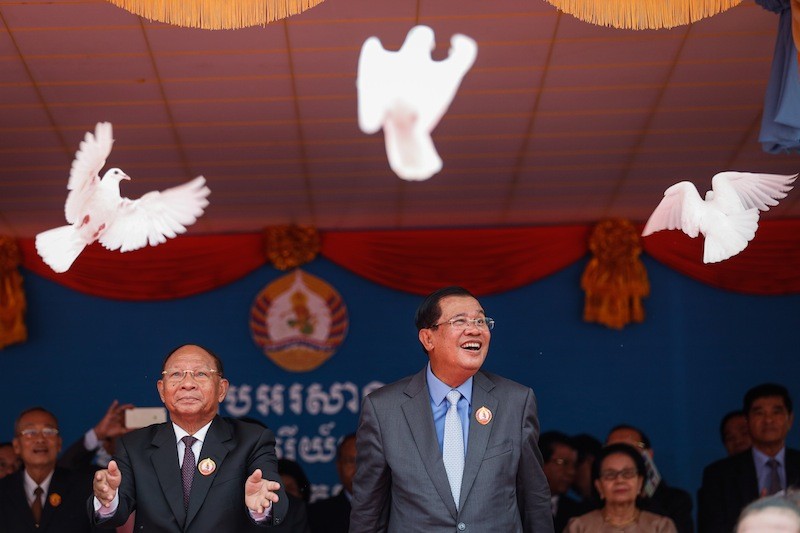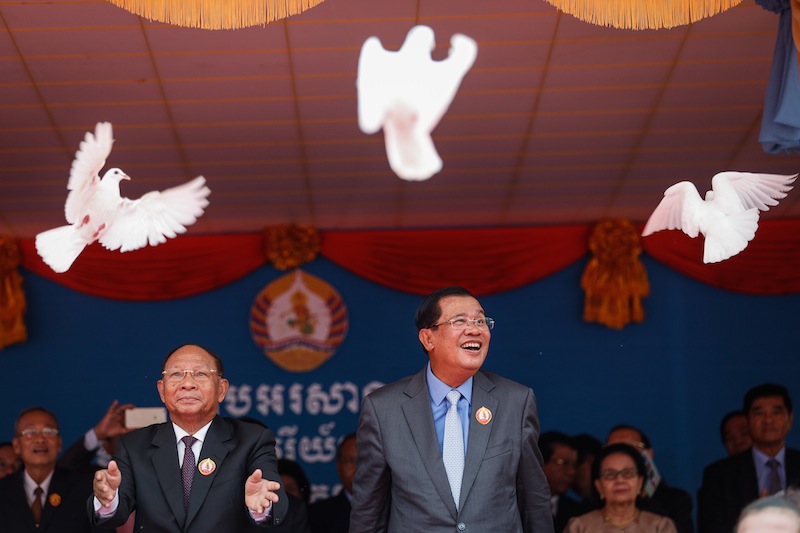Democracy in Cambodia has deteriorated in the lead-up to Sunday’s commune elections, potentially keeping opposition voters from the polls or from voting for their chosen candidates, a group of Asean parliamentarians said on Wednesday—a claim the government rebutted.
The “future of Cambodia’s fragile democracy is under very grave threat,” Asean Parliamentarians for Human Rights chair Charles Santiago said in the group’s statement.

In separate statements following a Tuesday meeting in Canberra with Cambodian community leaders, parliamentarians from Australia also expressed concern about the state of democracy in Cambodia.
“What chills us most is the suppression of democracy,” said Clare O’Neil, a member of parliament.
Mr. Santiago, a member of the Malaysian Parliament, referenced a comment by Defense Minister Tea Banh earlier this month that he would “smash the teeth” of those opposing Sunday’s commune election results and Prime Minister Hun Sen’s boast last week that he was willing to “eliminate 100 or 200 people” to prevent being overthrown.
“This rhetoric of coups and violence is not just about threatening the opposition,” Mr. Santiago added. “It is also about scaring everyday Cambodians into voting for the ruling party and limiting their aspirations for change.”
Government spokesman Phay Siphan brushed off the Asean statement on Wednesday, saying it came from “individuals, not
Asean parliamentarians,” echoing the government response to a March report released by the Asean group that said the ruling party used “violent mobs to carry out its goals” of intimidating opposition and creating a climate of fear.
“Cambodia enjoys peace and stability. Every political party has the opportunity,” Mr.
Siphan said. “The voters have the choice.”
He denied that war-waging rhetoric would intimidate voters.
“The state of democracy has been formed,” he added. “We improve from day to day, year to year…. So far, so good.”
Ms. O’Neil, of the Australian Parliament, on Tuesday recalled the 2013 election in her remarks.
“We saw in the 2013 elections some very concerning things,” she said. “Probably the worst incident was the shooting of five garment workers who were just expressing their civil rights and protesting in the streets. They were shot dead…and since then things have deteriorated further.”
Miguel Chanco, lead analyst in the Asean region for the Economist Intelligence Unit, said recent CPP threats “indicate clearly that the party is more concerned about holding on to power than holding elections in a free and fair environment.”
The threats could persuade “would-be opposition voters to opt for the status quo,” Mr. Chanco said.
Phil Robertson, deputy Asia director for Human Rights Watch, said the National Election Committee (NEC) had a responsibility to ensure voters’ rights are protected. The NEC should “demand all CPP leaders, including the prime minister, who have said such things to repudiate their statements and apologize to those who have been targeted,” he said.




